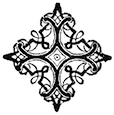
“I’m waving a flag of truce, Miss Ducharme. Can’t we declare an armistice for ten minutes to bury our dead?”
Sudden Jim
By Clarence Budington Kelland
Author of “The Hidden Spring,” Etc.

WITH FRONTISPIECE
A. L. BURT COMPANY
Publishers—New York
Published by Arrangement with Harper & Brothers
Sudden Jim
Copyright 1916. by Harper & Brothers
Printed in the United States of America
Published February, 1917
SUDDEN JIM
CHAPTER I
It is not a fact that clothespins are threshed outlike beans or wheat. They are not a productof nature, but of art and machinery. A clear understandingof this is necessary before the story canbegin to march; for if clothespins had grown infields inclosed by rail fences, and were gathered bythe aid of a self-binder, there never would have beenan individual known from coast to coast as ClothespinJimmy. This individual would not have hada son named James, nor would Clothespin Jimmyhave started to build a new clothespin-mill in Diversity,Michigan. So it is manifest that the factstated in the first paragraph hereof lies at the verytap-root of the whole matter.
If you studied sufficiently over the hieroglyphicsappended by Clothespin Jimmy at the end of acheck you discovered them to indicate the signature“James Ashe.” But it required more than a passingglance. Nobody ever quarreled with the signature,because it suited the old man and was honored bythe bank.
The owner of the illegible signature was sixty-fiveyears old, was hale, hearty, and ripe for adventure.Also he figured that fifty years of hard labor aboutcompleted his sentence and that he was entitledto play about.
Therefore he called home his son James, who hadshown an early and marked distaste for the clothespinbusiness, and took him into the library, wherethere lived in ease and idleness some ninety feet ofassorted red, blue and black books. He opened theconversation:
“Son, what name do folks call you by when theyspeak to you?”
“Why—Jim, I guess.”
“Just Jim? Nothing describin’ it?”
“That’s all.”
“Why?”
“I haven’t the least notion, father. Why shouldthey call me anything else?”
“No reason in the world. That’s what I’m gettin’at in my feeble way. What do folks call me?”
“Clothespin Jimmy,” replied his son, promptly.
“Yes, and when I die that’s what’s goin’ onto theheadstone. It means somethin’. There hain’t noneed for a verse of poetry and clasped hands.‘Clothespin Jimmy’ tells the whole story. I don’tmind sayin’ I’m proud of it. Just like I was proudof the first dollar I ever handled—because I earnedit. Folks call me Clothespin Jimmy because I’vedone things with clothespins—things that amountto somethin’. Men don’t git names like that bysettin’ in one spot till their pants wear thin. Now,take you—they call you Jim, and there the matterends. That’s where you end. You’re just Jim, like